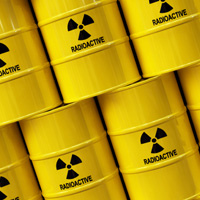-
Grants
30
-
Total Awarded
$11,510,500
-
Years
1984 - 2022
-
Categories
Grants
The Federation of American Scientists (FAS) is a nonprofit policy research and advocacy organization founded in 1945 to meet national security challenges with evidence-based, scientifically-driven, and nonpartisan policy analysis and research. FAS works to minimize the risks of significant global threats arising from nuclear weapons, biological and chemical agents, and climate change. This award supports a pilot fellowship program for aspiring nuclear weapons experts.
The Federation of American Scientists (FAS) provides science-based analysis of and solutions to protect against catastrophic threats to national and international security. As part of its approach, FAS incorporates diverse sets of experts from younger career scientists and engineers to senior leaders in science, policy, intelligence community, and law. This award in support of general operations enables FAS to continue its science-based analysis on important nuclear policy issues, including those related to weapons-useable nuclear material and the nuclear regime.
The Federation of American Scientists (FAS) provides science-based analysis of and solutions to protect against catastrophic threats to national and international security. As part of its approach, FAS incorporates diverse sets of experts from younger career scientists and engineers to senior leaders in science, policy, intelligence community, and law. The purpose of providing general operating support is to allow FAS to continue its science-based analysis on important nuclear policy issues, including that related to weapons-useable nuclear material, as well as flexibility in responding to changes in the context of its work, as they arise.
Founded in 1945, the Federation of American Scientists works to reduce nuclear dangers and ultimately prevent global catastrophe. This project identifies critical barriers and potential incentives to disposing of weapons-useable plutonium. The primary intended outcome of this project is to surface best practices and immediate or near-term policy options on plutonium disposition.
The Federation of American Scientists (FAS) is a non-profit membership organization, with members from the academic, non-profit, and government communities, that works to provide science-based analysis of, and solutions to protect against, catastrophic threats to national and international security. The award provides support for several FAS projects that address nuclear security and nonproliferation, including task forces on highly enriched uranium use in naval propulsion, and implementation of aspects of the Iran deal. In addition to involving senior leaders in science, policy, and law in these task forces, FAS incorporates younger career scientists and engineers to expose them to the policy challenges presented by their fields and encourage their pursuit of work at the intersection of nuclear science and policy.
The Federation of American Scientists (FAS) works to provide science-based analysis of and solutions to protect against catastrophic threats to national and international security. The award extends FAS’ highly successful project on the technical and policy dimensions required to adequately verify a nuclear agreement with Iran. The intended outcome is to support conclusion of a nuclear agreement with Iran by refining and developing the FAS recommendations, developed under the initial project, in which policymakers expressed significant interest.
To support a project on nuclear verification requirements for an agreement with Iran.
The Federation of American Scientists (FAS) works to provide science-based analysis of and solutions to protect against catastrophic threats to national and international security. Continued use of highly enriched uranium (HEU), a weapons-usable fissile material, raises the risks of diversion into nation states’ weapons programs and acquisition by terrorists groups. While efforts are underway worldwide to minimize the use of HEU in civilian applications, some countries continue to use significant quantities of HEU in the naval sector. This project will assemble an FAS task force to analyze the challenges posed by HEU in the naval sector and seek solutions.
To create a management plan for the National Center for Research in Advanced Information and Digital Technologies.
To make available to policymakers and the public scientific information and analysis related to nuclear weapons (over 18 months).
In support for scientific analysis and dissemination of technical information related to arms control and nuclear nonproliferation (over two years).
In support of general operations.
In support of activities to make available to policymakers and the public scientific information and analysis related to arms control and weapons of mass destruction (over three years).
To disseminate scientific information and analysis related to arms control and weapons of mass destruction (over two years).
To provide scientific information and analyses of arms control and issues related to weapons of mass destruction (over two years).
To provide scientific information and analyses of arms control and issues related to weapons of mass destruction (over two years).
To support research and education on the sale of small arms.
To support research and education on the sale of small arms.
To strengthen compliance with the Biological Weapons Convention.
To strengthen compliance with the Biological Weapons Convention.
To explore the arms control potential of satellite imagery technology available from commercial sources.
To support the Arms Sales Monitoring Project (over two years).
To support a project on arms trade monitoring.
To support expanded public outreach activities for the Arms Sales Monitoring Project (over two years).
To support a series of hearings designed to deepen public and Congressional understanding of highly technical public-policy issues, including the space program and military activities.
To support the Indochina Project (over three years).
To support the research project "New Approaches to Conventional Arms Control and Security in Europe," by Thomas K. Longstreth.
To support public understanding of national and international security issues and to develop an international network of scientists (over two years).
For "Restructuring the Navy in a New Budget Era," by Tom Stefanick.
To evaluate present and potential contributions to public understanding of national and international security issues, and for exploration of new connections and interactions among constituencies (over three years).





